Home construction projects are often complex, with many moving parts, deadlines, and financial considerations. As a result, disputes between homeowners, contractors, and subcontractors can sometimes arise. Miscommunication, delays, or disagreements over materials and costs can lead to frustrations, but addressing these disputes early and effectively is key to keeping your project on track. Tips on resolving disputes during home construction projects. Work with experts for best results through construction consulting services.
In this article, we’ll explore practical tips for resolving disputes during home construction projects. By managing conflicts professionally and with clear communication, you can avoid costly delays and maintain a positive working relationship with your construction team.
1. Set Clear Expectations from the Start
One of the most effective ways to prevent disputes is by setting clear expectations at the beginning of the project. A detailed contract should outline the scope of work, project timeline, payment schedule, and materials to be used. Make sure everything is in writing to avoid misunderstandings.
Important elements of the contract include:
- A detailed description of the work to be completed.
- Agreed-upon deadlines and milestones.
- Clear payment terms and schedule.
- Specific materials, finishes, or brands to be used.
By having all these details clearly laid out, both parties can refer to the contract in case any disagreements arise. This clarity helps avoid confusion and keeps everyone accountable.
2. Maintain Open and Frequent Communication
Good communication is critical throughout any construction project. Many disputes arise from simple misunderstandings or assumptions. To avoid this, maintain regular communication with your contractor and construction team. Schedule weekly check-ins or updates to discuss progress, potential issues, and next steps.
Ask questions if you’re unclear about anything, and encourage the contractor to do the same. When both parties are on the same page, the risk of disputes decreases.
Tips for better communication:
- Use email or written correspondence to document decisions and agreements.
- Request regular updates from the contractor on project progress.
- Address concerns or problems immediately instead of letting them build up.
By staying engaged and proactive, you can prevent small issues from escalating into bigger disputes.
3. Address Issues Early
If a problem arises during your home construction project, it’s important to address it early. Waiting too long to raise concerns can lead to misunderstandings, frustration, and bigger issues down the road.
For example, if you notice that the wrong materials were delivered or installed, bring it up with your contractor as soon as possible. The longer the issue goes unaddressed, the more difficult (and expensive) it may become to resolve. Early intervention helps ensure that problems are corrected before they impact the entire project.
Tips for addressing issues early:
- Document the issue with photos or notes to provide clear evidence.
- Have a calm, solution-focused conversation with your contractor about the problem.
- Offer suggestions for resolving the issue quickly to keep the project moving forward.
Being proactive and clear about your concerns can help prevent a minor issue from becoming a major setback.
4. Keep Detailed Records
Maintaining detailed records throughout the project is essential for dispute resolution. Keep copies of all contracts, emails, text messages, invoices, and any other documentation related to the project. These records can serve as evidence if a dispute arises, ensuring that both parties have a clear reference to previous agreements and conversations.
Key records to keep:
- Contracts and any amendments.
- Receipts for payments and materials.
- Communication logs (emails, messages, etc.).
- Photos of the construction site at various stages.
Having organized records makes it easier to resolve disputes quickly and accurately, especially when it comes to misunderstandings around payments, timelines, or materials.
5. Stay Flexible and Solution-Oriented
Disputes often arise because of unforeseen challenges, such as delays in material delivery or unexpected issues with the site. While frustrating, it’s important to remain flexible and focus on finding solutions rather than assigning blame.
When an issue arises, work with your contractor to explore alternative options. Whether it’s sourcing different materials, adjusting the timeline, or negotiating additional costs, approaching the problem with a solution-oriented mindset can help resolve the dispute more quickly.
Steps to staying solution-focused:
- Stay calm and avoid confrontational language.
- Ask for your contractor’s input on resolving the issue.
- Be open to reasonable changes or compromises to keep the project on track.
By working collaboratively, you can overcome challenges while maintaining a positive working relationship.
6. Understand Contract Provisions for Dispute Resolution
Before the project begins, make sure your contract includes provisions for dispute resolution. These provisions outline the process for handling disagreements, offering a structured approach to resolving issues if informal discussions fail.
Common dispute resolution methods include:
- Mediation: A neutral third party helps both sides come to an agreement.
- Arbitration: A neutral arbitrator listens to both parties and makes a binding decision.
- Litigation: If other methods fail, taking legal action in court may be necessary, though it’s often a last resort.
Including these provisions in the contract ensures that both parties know how disputes will be handled, reducing the chances of conflict escalating.
7. Involve a Third Party if Necessary
Sometimes, despite your best efforts, you may need to bring in a neutral third party to help resolve a dispute. Mediation and arbitration are common options that allow both sides to present their case to an impartial mediator or arbitrator, who then helps negotiate a fair resolution.
Mediation tends to be less formal and is often a good first step if informal negotiations don’t resolve the issue. If mediation fails, arbitration may be the next step. In arbitration, both parties present evidence, and the arbitrator makes a legally binding decision.
Benefits of involving a third party:
- Neutral parties can provide objective insights and solutions.
- Mediation and arbitration are faster and less costly than litigation.
- It helps keep the project moving forward while resolving disputes.
Taking this step can prevent costly legal battles and save time while protecting both parties’ interests.
8. Avoid Withholding Payments Without Cause
Withholding payments is a common response when disputes arise, but it can lead to even bigger problems. Contractors rely on progress payments to cover labor and material costs. If you withhold payments without proper cause, it can lead to delays, strained relationships, and even legal action.
Instead of withholding payment, clearly communicate the issue and work towards a resolution. If the problem is significant enough to merit withholding payment, ensure it’s done in accordance with the contract’s provisions and after consulting with legal counsel.
Steps to take before withholding payment:
- Document the issue in writing.
- Discuss the problem with your contractor and explore potential solutions.
- Review the contract to understand your legal rights regarding payments.
By handling payment issues carefully, you can avoid escalation and work towards a fair resolution.
9. Seek Legal Advice When Needed
If you’re unable to resolve a dispute through communication, mediation, or arbitration, it may be time to consult an attorney. A legal professional can review your contract, provide advice on your rights, and help you determine the best course of action.
While legal action should be a last resort, it’s important to understand when you need professional guidance. A lawyer can help you navigate more complex disputes, protect your interests, and ensure you don’t make decisions that could negatively impact the outcome of your project.
Conclusion
Disputes during home construction projects are common but manageable. By setting clear expectations, maintaining open communication, and addressing issues early, you can prevent small disagreements from turning into major conflicts.
When disputes do arise, focus on finding solutions and consider involving a neutral third party if needed. Ultimately, a proactive approach to dispute resolution will help keep your home construction project on track and ensure a successful outcome for everyone involved. Tips on resolving disputes during home construction projects. Work with experts for best results through construction consulting services.


